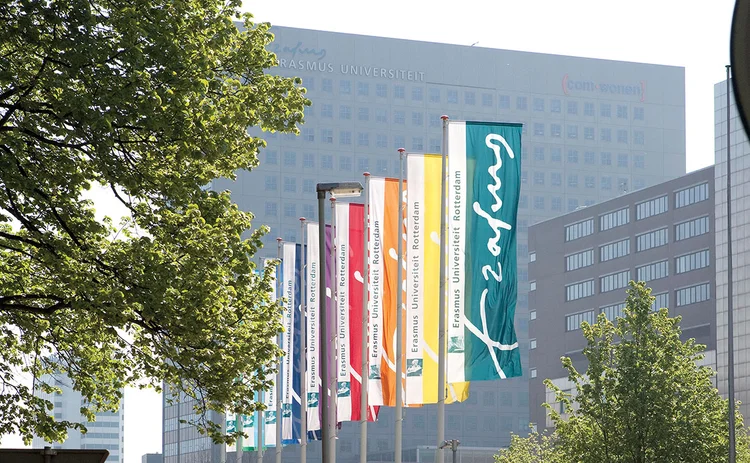
Quant Guide 2021: Erasmus University Rotterdam
Rotterdam, Netherlands

Erasmus University Rotterdam’s Master in Quantitative Finance returns to the Risk.net Quant Guide for the third time, with its largest student cohort yet. It’s now the second-largest European programme in the guide by size, with 140 students – up 40 on last year.
The course remains in demand with prospective students: of the 155 applicants who received offers, 140 accepted, giving the master’s a strong offer-holder acceptance rate of 90.3%. The programme was not immune from the effects of Covid: 80% of internships were conducted remotely in 2020, says programme director Dick van Dijk, a professor of financial econometrics.
As was the case in the last edition of the guide, Erasmus’s programme is comprised of seven compulsory courses, involving material on: asset and derivatives pricing; risk management; portfolio management; econometrics, a team-based applied research project that lasts for two months; and a master’s thesis.
The thesis can focus on theoretical or practical work – if the latter is chosen, it’s normally done in tandem with an internship or traineeship. Recent project efforts conducted by students have included work on: limit order book data in high-frequency algorithmic trading; hedging interest rate risk for corporate bonds; and active investment strategies for commodities.
Employment routes taken by graduates of the course have remained fairly static over the past year, with students entering banking in slightly greater numbers in 2020. Asset management and financial technology positions are still the dominant choices. Over the past four years, 25% of graduates have taken up positions in asset management, and 30% have entered fintech.
Only users who have a paid subscription or are part of a corporate subscription are able to print or copy content.
To access these options, along with all other subscription benefits, please contact info@risk.net or view our subscription options here: http://subscriptions.risk.net/subscribe
You are currently unable to print this content. Please contact info@risk.net to find out more.
You are currently unable to copy this content. Please contact info@risk.net to find out more.
Copyright Infopro Digital Limited. All rights reserved.
As outlined in our terms and conditions, https://www.infopro-digital.com/terms-and-conditions/subscriptions/ (point 2.4), printing is limited to a single copy.
If you would like to purchase additional rights please email info@risk.net
Copyright Infopro Digital Limited. All rights reserved.
You may share this content using our article tools. As outlined in our terms and conditions, https://www.infopro-digital.com/terms-and-conditions/subscriptions/ (clause 2.4), an Authorised User may only make one copy of the materials for their own personal use. You must also comply with the restrictions in clause 2.5.
If you would like to purchase additional rights please email info@risk.net
More on Quantitative finance
Baruch, Princeton cement duopoly in 2026 Quant Master’s Guide
Columbia jumps to third place, ETH-UZH tops European rivals
Quant Finance Master’s Guide 2025
Risk.net’s guide to the world’s leading quant master’s programmes, with the top 25 schools ranked
Baruch maintains top spot in 2025 Quant Master’s Guide
Sorbonne reclaims top spot among European schools, even as US salaries decouple
Quant Finance Master’s Guide 2023
Risk.net’s guide to the world’s leading quant master’s programmes, with the top 25 schools ranked
Baruch topples Princeton in Risk.net’s quant master’s rankings
US schools cement top five dominance as graduate salaries soar
Is it worth doing a quant master’s degree?
UBS’s Gordon Lee – veteran quant and grad student supervisor – asks the hard question
Starting salaries jump for top quant grads
Quant Guide 2022: Goldman’s move to pay postgrads more is pushing up incomes, says programme director
Quant Finance Master’s Guide 2022
Risk.net’s guide to the world’s leading quant master’s programmes, with the top 25 schools ranked







